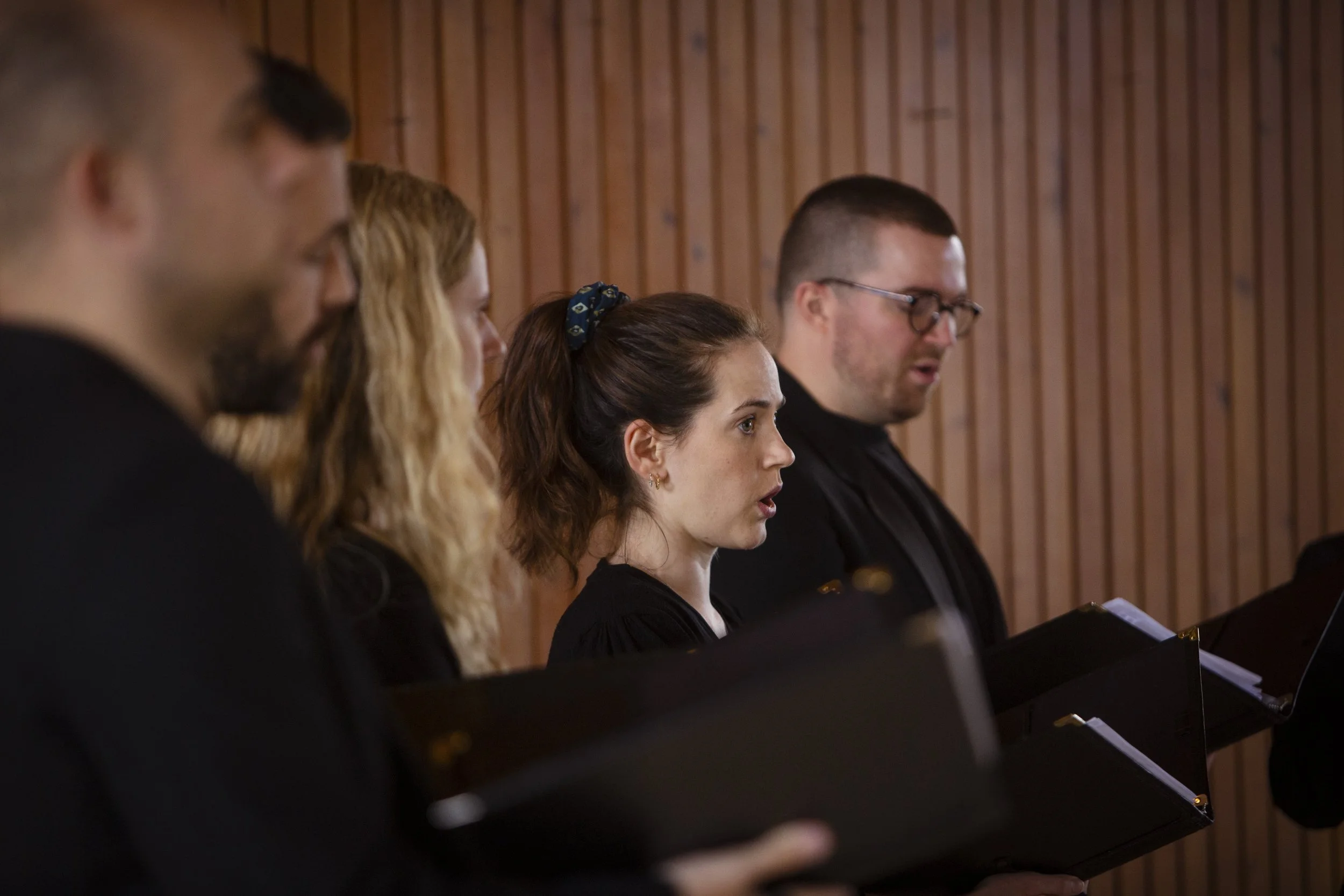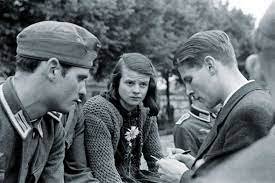Traces of the White Rose
Find out more about our multi-dimensional project exploring the lives and stories of the members of the White Rose resistance through a new podcast series and live performances.
The White Rose was an anti-Nazi movement run by a core group of five students and a professor in the southern German city of Munich in the early 1940s after the outbreak of the Second World War…
The White Rose resistance stretched far beyond Munich, but at its heart there were six individuals: students Hans Scholl (1918–1943) and his sister Sophie Scholl (1921–1943), Christoph Probst (1919–1943), Alexander Schmorell (1917–1943), Willi Graf (1918–1943), and Professor Kurt Huber (1893–1943).
Between 1942 and 1943 the group wrote and distributed six pamphlets calling on their fellow Germans to mount passive resistance against the Nazi regime. They used a second-hand duplicating machine, and even obtained paper, envelopes, and stamps despite wartime shortages.
They distributed the pamphlets at great personal risk. On 18 February 1943 Hans and Sophie Scholl took copies of the sixth pamphlet to the University of Munich and deposited them around the atrium at the entrance of the main university building. They were spotted by a university caretaker, and were immediately detained by the Nazi secret police, the Gestapo.
Following their subsequent arrests, on 22 February Hans Scholl, Sophie Scholl and Christoph Probst were sentenced to death and executed by guillotine just hours after the conclusion of their trial. Alexander Schmorell, Kurt Huber, and Willi Graf were subsequently arrested, tried, and sentenced to death on 19 April. Schmorell and Huber were executed three months later, on 13 July, and Graf was executed on 12 October 1943.
The texts that remain are the traces of people who lived and risked their lives for freedom – resistors who stood up to Nazism, and paid with their lives.
“Wherever you may be, mount passive resistance – RESISTANCE …Remember that every people deserves the government it is prepared to tolerate.”
Our partners
We have been working on a multi-faceted recording and cultural exchange project in collaboration with the University of Oxford’s White Rose Project, led by Dr Alexandra Lloyd, a lecturer in German Studies and author of Defying Hitler: The White Rose Pamphlets.
Through the White Rose Project, current Oxford University students have provided us with vivid new English translations of the group’s letters, diaries and resistance pamphlets. Alongside their powerful political writings, hearing their private words reveals the human reality behind the groups’ political activism.
“There are times when I dread the war and I’m on the brink of losing all hope. I don’t like to think about it, but soon there won’t be anything but politics, and as long as politics is this confused and evil, turning away from it would be cowardly.”
The Podcast
This collaboration has encouraged us to think beyond traditional formats for choral music and we are delighted to announce that Traces of the White Rose will be released by Oxford University Podcasts on 12 October 2023, the 80th anniversary of the final White Rose executions.
We’ll be sharing the story of the White Rose in the resistors’ own words, alongside choral music from our latest album Traces.
We know that the members of the White Rose were all highly creative and musical people - they sang in choirs, played instruments and went to concerts together. Professor Kurt Huber was also a musicologist and folk song collector. One of Dr Alex Lloyd’s theories is that their engagement in music, art, and culture might have helped them to imagine a world beyond the Third Reich, which in turn led them to take political action.
“Music softens the heart; it orders its confusion, relaxes its tension, and creates the conditions for the work of the spirit in the soul which had previously knocked in vain at its tightly sealed doors. Yes, quietly and peacefully music opens the doors of the soul…”
As Sophie Scholl writes, music creates the conditions for the work of the spirit. The music in the podcast represents their cultural imagination and embodies their connections to each other - multiple voices working together to express their profound sense of responsibility to speak up and be heard.
Traces of the White Rose Podcast was made with support from the Genesis Foundation Kickstart Fund, the University of Oxford’s Public Engagement with Research Seed Fund, The Oxford Research Centre in the Humanities, and the Higher Education and Innovation Fund.





